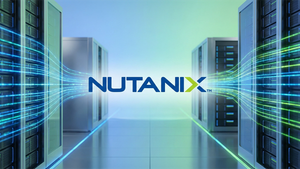
Taipei, Taiwan – October 8, 2025 – In a move set to profoundly impact the global semiconductor landscape, Multibeam Corporation, a pioneer in advanced electron-beam lithography, and Marketech International Corporation (MIC) (TWSE: 6112), a prominent technology services provider in Taiwan, today announced a strategic partnership. This collaboration is designed to dramatically accelerate the adoption of Multibeam’s cutting-edge Multiple-Column E-Beam Lithography (MEBL) systems across Taiwan’s leading chip fabrication facilities. The alliance comes at a critical juncture, as the demand for increasingly sophisticated and miniaturized semiconductors, particularly those powering the burgeoning artificial intelligence (AI) sector, reaches unprecedented levels.
This partnership is poised to significantly bolster Taiwan's already dominant position in advanced chip manufacturing by providing local foundries with access to next-generation lithography tools. By integrating Multibeam's high-resolution, high-throughput MEBL technology, Taiwanese manufacturers will be better equipped to tackle the intricate patterning challenges of sub-5-nanometer process nodes, which are essential for the development of future AI accelerators, quantum computing components, and other high-performance computing solutions. The immediate significance lies in the promise of faster innovation cycles, enhanced production capabilities, and a reinforced supply chain for the world's most critical electronic components.
Unpacking the Precision: E-Beam Lithography's Quantum Leap with MEBL
At the heart of this transformative partnership lies Electron Beam Lithography (EBL), a foundational technology for fabricating integrated circuits with unparalleled precision. Unlike traditional photolithography, which uses light and physical masks to project patterns onto a silicon wafer, EBL employs a focused beam of electrons to directly write patterns. This "maskless" approach offers extraordinary resolution, capable of defining features as small as 4-8 nanometers, and in some cases, even sub-5-nanometer resolution – a critical requirement for the most advanced chip designs that conventional optical lithography struggles to achieve.
Multibeam's Multiple-Column E-Beam Lithography (MEBL) systems represent a significant evolution of this technology. Historically, EBL's Achilles' heel has been its relatively low throughput, making it suitable primarily for research and development or niche applications rather than volume production. Multibeam addresses this limitation through an innovative architecture featuring an array of miniature, all-electrostatic e-beam columns that operate simultaneously and in parallel. This multi-beam approach dramatically boosts patterning speed and efficiency, making high-resolution, maskless lithography viable for advanced manufacturing processes. The MEBL technology boasts a wide field of view and large depth of focus, further enhancing its utility for diverse applications such as rapid prototyping, advanced packaging, heterogeneous integration, secure chip ID and traceability, and the production of high-performance compound semiconductors and silicon photonics.
The technical superiority of MEBL lies in its ability to combine the fine feature capability of EBL with improved throughput. This direct-write, maskless capability eliminates the time and cost associated with creating physical masks, offering unprecedented design flexibility and significantly reducing development cycles. Initial reactions from the semiconductor industry, while not explicitly detailed, can be inferred from the growing market demand for such advanced lithography solutions. Experts recognize that multi-beam EBL is a crucial enabler for pushing the boundaries of Moore's Law and fabricating the complex, high-density patterns required for next-generation computing architectures, especially as the industry moves beyond the capabilities of extreme ultraviolet (EUV) lithography for certain critical layers or specialized applications.
Reshaping the Competitive Landscape: Beneficiaries and Disruptors
This strategic alliance between Multibeam Corporation and Marketech International Corporation (MIC) is set to send ripples across the semiconductor industry, creating clear beneficiaries and potentially disrupting existing market dynamics. Foremost among the beneficiaries are Taiwan’s leading semiconductor manufacturers, including giants like Taiwan Semiconductor Manufacturing Company (TSMC) (NYSE: TSM), who are constantly seeking to maintain their technological edge. Access to Multibeam’s MEBL systems, facilitated by Marketech’s deep local market penetration, will provide these fabs with a crucial tool to accelerate their development of sub-5nm and even sub-3nm process technologies, directly impacting their ability to produce the most advanced logic and memory chips.
For Multibeam Corporation, this partnership represents a significant expansion into the world's most critical semiconductor manufacturing hub, validating its MEBL technology as a viable solution for volume production. Marketech International Corporation (MIC) (TWSE: 6112), a publicly traded company on the Taiwan Stock Exchange, strengthens its portfolio as a leading technology services provider, enhancing its value proposition to local manufacturers by bringing cutting-edge lithography solutions to their doorstep. The competitive implications are substantial: Taiwan's fabs will further solidify their leadership in advanced node manufacturing, potentially widening the technology gap with competitors in other regions. This development could also put pressure on traditional lithography equipment suppliers to accelerate their own R&D into alternative or complementary patterning technologies, as EBL, particularly multi-beam variants, carves out a larger role in the advanced fabrication workflow. The ability of MEBL to offer rapid prototyping and flexible manufacturing will be particularly advantageous for startups and specialized chip designers requiring quick turnarounds for innovative AI and quantum computing architectures.
A Wider Lens: EBL's Role in the AI and Quantum Revolution
The Multibeam-Marketech partnership and the accelerating adoption of E-Beam Lithography fit squarely within the broader AI landscape, acting as a foundational enabler for the next generation of intelligent systems. The insatiable demand for computational power to train and deploy increasingly complex AI models, from large language models to advanced machine learning algorithms, directly translates into a need for more powerful, efficient, and densely packed semiconductor chips. EBL's ability to create nanometer-level features is not just an incremental improvement; it is a prerequisite for achieving the transistor densities and intricate circuit designs that define advanced AI processors. Without such precision, the performance gains necessary for AI's continued evolution would be severely hampered.
Beyond conventional AI, EBL is proving to be an indispensable tool for the nascent field of quantum computing. The fabrication of quantum bits (qubits) and superconducting circuits, which form the building blocks of quantum processors, demands extraordinary precision, often requiring sub-5-nanometer feature resolution. Traditional photolithography struggles significantly at these dimensions. EBL facilitates rapid iteration of qubit designs, a crucial advantage in the fast-paced development of quantum technologies. For example, Intel (NASDAQ: INTC) has leveraged EBL for a significant portion of critical layers in its quantum chip fabrication, demonstrating its vital role. While EBL offers unparalleled advantages, potential concerns include the initial capital expenditure for MEBL systems and the specialized expertise required for their operation and maintenance. However, the long-term benefits in terms of innovation speed and chip performance often outweigh these costs for leading-edge manufacturers. This development can be compared to previous milestones in lithography, such as the introduction of immersion lithography or EUV, each of which unlocked new possibilities for chip scaling and, consequently, advanced computing.
The Road Ahead: EBL's Trajectory in a Data-Driven World
Looking ahead, the partnership between Multibeam and Marketech, alongside the broader advancements in E-Beam Lithography, signals a dynamic future for semiconductor manufacturing and its profound impact on emerging technologies. In the near term, we can expect to see a rapid increase in the deployment of MEBL systems across Taiwan’s semiconductor fabs, leading to accelerated development cycles for advanced process nodes. This will directly translate into more powerful and efficient AI chips, enabling breakthroughs in areas such as real-time AI inference, autonomous systems, and generative AI. Long-term developments are likely to focus on further enhancing MEBL throughput, potentially through even larger arrays of electron columns and more sophisticated parallel processing capabilities, pushing the technology closer to the throughput requirements of high-volume manufacturing for all critical layers.
Potential applications and use cases on the horizon are vast and exciting. Beyond conventional AI and quantum computing, EBL will be crucial for specialized chips designed for neuromorphic computing, advanced sensor technologies, and integrated photonics, which are becoming increasingly vital for high-speed data communication. Furthermore, the maskless nature of EBL lends itself perfectly to high-mix, quick-turn manufacturing scenarios, allowing for rapid prototyping and customization of chips for niche markets or specialized AI accelerators. Challenges that need to be addressed include the continued reduction of system costs, further improvements in patterning speed to compete with evolving optical lithography for less critical layers, and the development of even more robust resist materials and etching processes optimized for electron beam interactions. Experts predict that EBL, particularly in its multi-beam iteration, will become an indispensable workhorse in the semiconductor industry, not only for R&D and mask making but also for an expanding range of direct-write production applications, solidifying its role as a key enabler for the next wave of technological innovation.
A New Era for Advanced Chipmaking: Key Takeaways and Future Watch
The strategic partnership between Multibeam Corporation and Marketech International Corporation marks a pivotal moment in the evolution of advanced chip manufacturing, particularly for its implications in the realm of artificial intelligence and quantum computing. The core takeaway is the acceleration of Multiple-Column E-Beam Lithography (MEBL) adoption in Taiwan, providing semiconductor giants with an essential tool to overcome the physical limitations of traditional lithography and achieve the nanometer-scale precision required for future computing demands. This development underscores EBL's transition from a niche R&D tool to a critical component in the production workflow of leading-edge semiconductors.
This development holds significant historical importance in the context of AI's relentless march forward. Just as previous lithography advancements paved the way for the digital revolution, the widespread deployment of MEBL systems promises to unlock new frontiers in AI capabilities, enabling more complex neural networks, efficient edge AI devices, and the very building blocks of quantum processors. The long-term impact will be a sustained acceleration in computing power, leading to innovations across every sector touched by AI, from healthcare and finance to autonomous vehicles and scientific discovery. What to watch for in the coming weeks and months includes the initial deployments and performance benchmarks of Multibeam's MEBL systems in Taiwanese fabs, the competitive responses from other lithography equipment manufacturers, and how this enhanced capability translates into the announcement of next-generation AI and quantum chips. This alliance is not merely a business deal; it is a catalyst for the future of technology itself.
This content is intended for informational purposes only and represents analysis of current AI developments.
TokenRing AI delivers enterprise-grade solutions for multi-agent AI workflow orchestration, AI-powered development tools, and seamless remote collaboration platforms.
For more information, visit https://www.tokenring.ai/.






